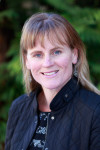Horizon Europe
New Zealand is an associated country in Pillar 2 of Horizon Europe, the European Union’s largest-ever research and innovation programme. New Zealand-based researchers and organisations can join or lead Horizon Europe projects and receive funding on equal terms with their European counterparts.
On this page
MBIE top-up funding scheme
MBIE is providing a top-up funding scheme for overhead costs to support New Zealand researchers and organisations participating in Horizon Europe projects.
Full details of the scheme are available on the domestic top-up scheme page.
Horizon Europe and New Zealand
Horizon Europe is the world’s largest multilateral research and innovation programme. New Zealand is now an associated country in Horizon Europe Pillar 2, meaning New Zealand partners can lead or join these consortia on equal terms with their European counterparts and receive funding through the programme. Pillar 2 focuses on science and technologies to address major global challenges, such as climate change, energy and health, and addressing the UN’s Sustainable Development Goals. It has funding of €53.5 billion (approximately NZD$90 billion) over the 2021 to 2027 period.
Horizon Europe Pillar 2 actions are structured in 6 thematic 'Clusters', with each having a published Work Programme outlining topics to be addressed in the current period. The Work Programmes include details of the scope of the topics, the expected impacts and outcomes, the available budget, and any conditions relating to the call.
The details of each Cluster, including links to the current Work Programmes and details of the relevant New Zealand National Contact Point, are linked on the pages below.
- Cluster 1: Health
- Cluster 2: Culture, heritage and inclusive society
- Cluster 3: Civil security and society
- Cluster 4: Digital, technology and space
- Cluster 5: Climate, energy and mobility
- Cluster 6: Food, bioeconomy, natural resources, agriculture and environment
How to get started
Proposals for most Pillar 2 actions are made by multinational research consortia with partners from a minimum of 3 EU Member States or Associated Countries (note that these are minimum criteria, and most proposals include additional partners).
The program is open to any legal entity, meaning that alongside researchers in traditional research organisations, partners can include businesses, local or regional authorities, non-government organisations, community groups and more. Pillar 2 has a strong focus on impact and implementation, so bringing the right mix of partners to deliver the expected outcomes is a key to being successful. It’s essential to find your partners early in the process.
Good ways to get started are:
- Browsing the work programme of the relevant Cluster for open and forthcoming calls by following the links above
- Reaching out to your networks in Europe as early as possible to find partners and build your consortium
- Speaking to one of the National Contact Points for advice
See the Further information section for more
How to apply for Horizon Europe funding
All Horizon Europe proposal submission and contracting takes place through the European Commission’s Funding and Tenders Portal, where you can also find all of the documentation, guidance, and details of funding calls. Every project requires one participant to act as the coordinator, and the coordinator manages all of the inputs from the consortium partners.
EU Funding & Tenders Portal(external link) – European Commission
If you need support with any aspect of this process, the NCPs can help.
Participating in other parts of Horizon Europe
Although New Zealand remains a non-associated third country participant in Pillar 1 and Pillar 3 of Horizon Europe, there are still many possibilities for New Zealand researchers to be involved. These will mostly fund New Zealand researchers to work internationally, although there are some cases where researchers can be supported to work in New Zealand.
If you’d like to know more:
Please note that the MBIE top-up scheme does not apply to actions outside of Pillar 2.
New Zealand’s National Contact Points (NCPs)
National Contact Points (NCPs) are a key source of information and advice on how to participate in Horizon Europe. New Zealand has 10 designated NCPs, including 6 specialist NCPs covering the six thematic Horizon Europe Clusters, and one Māori NCP to support Māori researchers and organisations to engage with the programme.
Please note that most of our NCPs are part-time in the NCP role, so please be aware that you may not always get an immediate response.
 Dr John Creech – NCP
Dr John Creech – NCP
- Horizon Europe Programme Manager, NCP coordinator, Ministry of Business, Innovation and Employment
- Wellington, New Zealand
- Email: nzncp@mbie.govt.nz
 Isaac Holliss - NCP
Isaac Holliss - NCP
- Science and Innovation Counsellor, Europe, New Zealand Mission to the European Union
- Brussels, Belgium
- Email: nzncp@mbie.govt.nz
 Cécile Richardeau – NCP for Pillar I (ERC, MSCA)
Cécile Richardeau – NCP for Pillar I (ERC, MSCA)
- New Zealand Mission to the European Union
- Brussels, Belgium
- Email: nzncp@mbie.govt.nz
 Prof. Rachael Taylor – NCP for Cluster 1 (Health)
Prof. Rachael Taylor – NCP for Cluster 1 (Health)
- Director, Edgar Diabetes and Obesity Research Centre and Head of Department (Medicine), University of Otago
- Dunedin, New Zealand
- Email: Cluster1NCP@mbie.govt.nz
 Prof. Nancy November – NCP for Cluster 2 (Culture, creativity and inclusive society)
Prof. Nancy November – NCP for Cluster 2 (Culture, creativity and inclusive society)
- Professor of Musicology, University of Auckland
- Auckland, New Zealand
- Email: Cluster2NCP@mbie.govt.nz
 Prof. Stephen MacDonell – NCP for Cluster 3 (Civil security for society)
Prof. Stephen MacDonell – NCP for Cluster 3 (Civil security for society)
- Professor and co-director for Te Whiri Kawe—Centre for Data Science and Artificial Intelligence, Victoria University of Wellington
- Auckland, New Zealand
- Email: Cluster3NCP@mbie.govt.nz
 Prof. John Cater – NCP for Cluster 4 (Digital, industry and space)
Prof. John Cater – NCP for Cluster 4 (Digital, industry and space)
- Professor of Aerospace Engineering and Director of the Aerospace Research Institute, University of Canterbury
- Christchurch, New Zealand
- Email: Cluster4NCP@mbie.govt.nz
 Prof. Iain White – NCP for Cluster 5 (Climate, energy and mobility)
Prof. Iain White – NCP for Cluster 5 (Climate, energy and mobility)
- Professor of Environmental Planning, University of Waikato
- Hamilton, New Zealand
- Email: Cluster5NCP@mbie.govt.nz
 Dr Cecile de Klein – NCP for Cluster 6 (Food, bioeconomy, natural resources, agriculture and environment)
Dr Cecile de Klein – NCP for Cluster 6 (Food, bioeconomy, natural resources, agriculture and environment)
- Principal Scientist – Environmental Science, Ethical Agriculture Group, AgResearch
- Mosgiel, New Zealand
- Email: Cluster6NCP@mbie.govt.nz
 Andrew Sporle – Māori NCP
Andrew Sporle – Māori NCP
- Managing Director, iNZight Analytics; Deputy Director, Healthier Lives National Science Challenge; Associate Professor (Honorary) of Statistics, University of Auckland
- Auckland, New Zealand
- Email: MaoriNCP@mbie.govt.nz
Further information
MBIE support
For more information or advice, contact our Horizon Europe secretariat by emailing:
You can also reach out to our National Contact Points
New Zealand's Horizon Europe National Contact Points
Or see the following page for more detailed information from MBIE on participation of New Zealand entities in Horizon Europe.
Further information on Horizon Europe for New Zealand entities
To receive occasional updates and information by email, please follow the link below and select the topics of interest.
Receive updates(external link)
European Commission guidance
Horizon Europe guidance and reference documents are available through the EU Funding and Tenders Portal.
Horizon Europe reference documents and guidance(external link) — European Commission
Other useful resources are available from EURAXESS Australia and New Zealand, an initiative of the European Commission providing free information about European research, career opportunities, international collaboration & networking possibilities.
EURAXESS Australia and New Zealand(external link) — European Commission
Horizon Europe Treaty documents 2022–2023
-
 Agreement between the European Union, of the one part, and New Zealand, of the other part, on the participations of New Zealand in Union programmes [PDF 189KB]
Agreement between the European Union, of the one part, and New Zealand, of the other part, on the participations of New Zealand in Union programmes [PDF 189KB]
-
 Approval for signature of the Horizon Europe Association Agreement between the European Union and New Zealand [PDF 1.1MB]
Approval for signature of the Horizon Europe Association Agreement between the European Union and New Zealand [PDF 1.1MB]
-
 New Zealand Association to Horizon Europe: Negotiating mandate [PDF 350KB]
New Zealand Association to Horizon Europe: Negotiating mandate [PDF 350KB]
Documents on the House of Representatives website
Parliamentary Treaty Examination: Report of the EDSI Select Committee [PDF, 528KB](external link) — House of Representatives NZ
For queries about New Zealand involvement in Horizon Europe, please direct these to nzncp@mbie.govt.nz.

